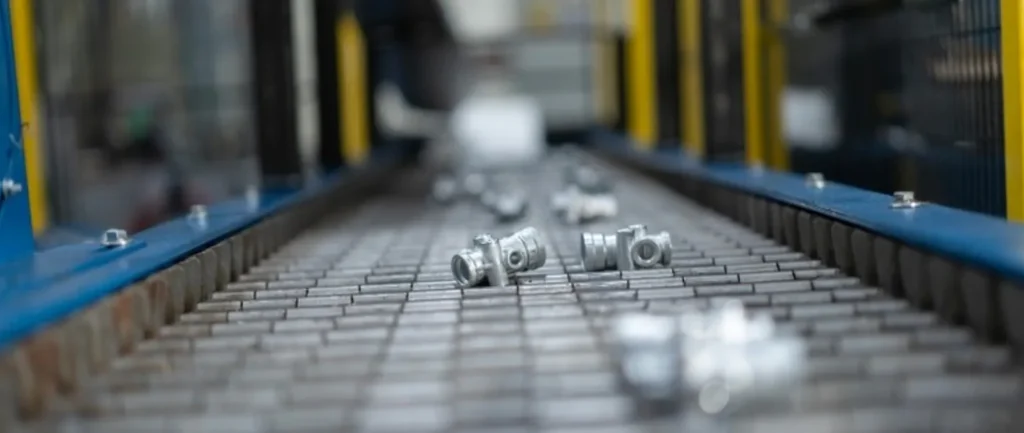Die Cast Metals – Ultimate Guide (Aluminum, Magnesium, Zinc & Brass)
Die Cast Metals – Comprehensive Guide for Engineers, Procurement & QC
Die casting is a precise and versatile manufacturing process that produces high-strength, durable, and complex components for multiple industries. Selecting the right die cast metal impacts mechanical performance, weight, corrosion resistance, thermal properties, and cost efficiency.
At IEC Mould, we provide a full range of die cast alloys—aluminum, magnesium, zinc, brass, and custom materials—helping engineers, procurement professionals, and quality teams find the ideal metal for their project.
Why Choosing the Right Die Cast Metal Matters
Mechanical Strength: Ensures components can handle operational stress.
Weight Management: Critical for automotive, aerospace, and electronics.
Corrosion Resistance: Extends component lifespan in harsh environments.
Thermal Properties: Supports heat dissipation and high-temperature stability.
Cost Efficiency: Optimizes material choice for production budgets.
Surface Finish & Post-Processing: Compatible with CNC machining, plating, painting, and powder coating.
Explore Our Die Cast Metals
Aluminum Die Casting

- Radar Graph Metrics: Strength: 8/10 | Weight: 9/10 | Corrosion Resistance: 9/10 | Cost: 6/10 | Machinability: 8/10
- Advantages: Lightweight, high strength-to-weight ratio, corrosion resistant, excellent heat dissipation
- Applications: Automotive engines, aerospace structures, electronics housings, heat sinks
- Design Tips: Wall thickness uniformity, draft angles, minimize shrinkage
Magnesium Die Casting

- Radar Graph Metrics: Strength: 7/10 | Weight: 10/10 | Corrosion Resistance: 7/10 | Cost: 6/10 | Machinability: 7/10
- Advantages: Ultra-lightweight, rigid, recyclable, ideal for weight-sensitive designs
- Applications: EV chassis, aerospace components, portable electronics
- Design Tips: Control thermal expansion, avoid thin sections in high-stress areas
Zinc Die Casting

- Radar Graph Metrics: Strength: 7/10 | Weight: 5/10 | Corrosion Resistance: 6/10 | Cost: 9/10 | Machinability: 8/10
- Advantages: Strong, cost-effective, supports thin-wall intricate designs
- Applications: Electronics, medical instruments, decorative hardware
- Design Tips: Optimize gating, venting, and cooling to reduce porosity
Brass Die Casting

- Radar Graph Metrics: Strength: 7/10 | Weight: 6/10 | Corrosion Resistance: 9/10 | Cost: 7/10 | Machinability: 9/10
- Advantages: Excellent corrosion resistance, superior machinability, attractive finish
- Applications: Plumbing fittings, valves, musical instruments, decorative hardware
- Design Tips: Control cooling rate, allow machining allowances
Die Cast Metals Comparison Table
| Metal | Strength | Weight | Corrosion Resistance | Cost Efficiency | Typical Applications |
|---|---|---|---|---|---|
| Aluminum | High | Light | Excellent | Medium | Automotive, Aerospace, Electronics |
| Magnesium | Medium | Ultra-Light | Good | Medium | Lightweight Vehicles, Aerospace, Electronics |
| Zinc | Medium | Heavy | Medium | High | Electronics, Hardware, Decorative Parts |
| Brass | Medium | Medium | Excellent | Medium | Plumbing, Valves, Decorative Parts |
Section 6: Why Choose IEC Mould for your die casting part?
- Comprehensive Alloy Range: Aluminum, magnesium, zinc, brass, and custom alloys
- Optimized Mechanical Properties: Strength, durability, corrosion resistance
- Expert Engineering Support: Material selection, design optimization, problem-solving
- Advanced Die Casting Technology: Precision molds, CNC machining, finishing options
- Quality Assurance: Dimensional inspection, mechanical testing, surface finish control
FAQ – Die Cast Metals
Which die cast metal is best for automotive applications?
Aluminum and magnesium for lightweight, high-strength components.
Is zinc suitable for intricate parts?
Yes, ideal for thin-wall and complex geometries.
What are the advantages of brass die casting?
Excellent corrosion resistance, machinability, and decorative finish.
Are die cast metals recyclable?
Yes, all our die cast alloys are highly recyclable.
How to select the right die cast metal?
Consider strength, weight, corrosion, thermal properties, cost, and finish. Use our Metal Selector Tool for guidance.
Differences between aluminum and magnesium?
Aluminum is heavier but more corrosion-resistant and heat-tolerant; magnesium is ultra-lightweight.
Zinc vs Brass for decorative parts?
Brass provides premium finish; zinc is more cost-effective for high-volume production.
Get Started With Your Die Casting Project
Our engineers can guide you in:
- Material selection
- Design optimization
- Advanced die casting solutions
Whether it’s your first die casting project or an improvement of an existing design, we help maximize performance, reduce costs, and achieve production goals.
